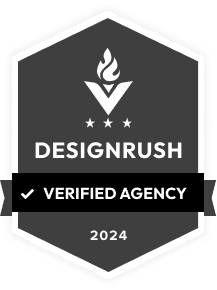
Supply chains are like living organisms. When healthy, they deliver life-sustaining resources exactly where they're needed. When compromised, the entire system suffers. And in today's hyperconnected global marketplace? That suffering isn't isolated—it cascades across your entire operation.
The modern supply chain isn't just complex—it's a labyrinth that's constantly shifting. Disruptions have become the norm rather than the exception. Weather events, geopolitical tensions, pandemic aftershocks, labor shortages—they all throw wrenches into even the most meticulously planned logistics operations.
That's why forward-thinking companies aren't just adapting—they're revolutionizing their approach through custom logistics software development. Because when off-the-shelf solutions force you to compromise, custom software bends to your unique operational reality.
Let's explore how the right custom-built logistics technology doesn't just solve problems—it transforms supply chains from vulnerability points into competitive advantages.
The New Supply Chain Reality: Complex, Demanding, and Unforgiving
Remember when "supply chain management" meant keeping track of inventory and making sure trucks arrived on schedule? Those days are long gone.
Today's supply chains stretch across continents, involve dozens of stakeholders, and generate terabytes of data. They're expected to be lightning-fast, cost-efficient, sustainable, and completely transparent—all while navigating unprecedented disruptions.
What happens when companies try to manage modern logistics challenges with outdated tools? Inventory discrepancies. Shipping delays. Frustrated customers. Wasted resources. And eventually, market share is bleeding to competitors who figured out how to do it better.
The hard truth is this: Excel spreadsheets and basic shipping software won't cut it anymore. Neither will generic enterprise solutions that weren't built for your specific operational challenges.
Common Supply Chain Pain Points That Strangle Growth
Before we talk solutions, let's acknowledge what's really happening in the trenches:
Your visibility gaps are costing you. When shipments disappear into information black holes between handoff points, you're left scrambling to answer the dreaded "where's my order?" question.
Your forecasting feels more like guesswork. Without real-time data integration across systems, inventory decisions are based on outdated information.
Your communication channels are fragmented. Suppliers use one system, carriers use another, warehouses use something else entirely—and none of them talk to each other seamlessly.
Your compliance requirements keep multiplying. Each new regulation adds another layer of documentation and verification processes that slow everything down.
But here's what separates industry leaders from those struggling to keep up: custom logistics software development doesn't just patch these problems—it prevents them entirely by building systems around your unique operational DNA.

Custom Logistics Software Development: Tailored Solutions for Complex Challenges
What exactly is custom logistics software development? It's the process of creating purpose-built digital tools that align perfectly with your specific logistics operations, challenges, and goals.
Unlike off-the-shelf software that forces your business to adapt to its limitations, custom logistics software development shapes technology around your needs—not the other way around.
Think of it this way: off-the-shelf logistics software is like buying a suit off the rack. It might look decent, but the sleeves are too long, the shoulders too tight, and it certainly wasn't designed with your unique proportions in mind. Custom software is the bespoke suit—measured, cut, and stitched specifically for you. It moves when you move and supports your natural workflow instead of restricting it.
Why Generic Solutions Fall Short
Generic logistics platforms aren't inherently bad—they're just designed to solve general problems in a general way. But your supply chain challenges aren't general. They're specific to your:
Industry requirements and regulations
Product characteristics and handling needs
Customer expectations and service promises
Geographical market coverage
Existing technology ecosystem
Organizational structure and workflows
When you force your unique business into a one-size-fits-all solution, you're essentially saying: "We're willing to compromise on operational efficiency for the sake of convenience." That might work when you're small, but as you scale? Those compromises become costly limitations.
The companies thriving despite supply chain turbulence have recognized that custom logistics software development isn't a luxury—it's a strategic necessity for sustainable growth.
Key Supply Chain Challenges & How Custom Software Solves Them
Let's get specific about the most pressing logistics challenges and how targeted custom software development transforms them from headaches into opportunities.
Inefficient Route Planning & Fleet Management
The Problem: Fuel costs continue to rise, traffic patterns change constantly, and inefficient routing drains resources while delaying deliveries. Many logistics operations still rely on static routes or basic GPS that don't account for real-world variables.
The Solution: Custom logistics software development services can deliver AI-powered route optimization that considers historical traffic patterns, weather conditions, delivery windows, vehicle capacities, and driver constraints – all in real-time.
Intelligent fleet management doesn't just plan better routes – it provides real-time visibility into vehicle locations, maintenance needs, and driver performance, creating a connected ecosystem that adapts to changing conditions on the fly.
Lack of Real-Time Visibility
The Problem: In today's "where is my order?" economy, customers and internal stakeholders expect instantaneous answers. Yet many companies still struggle with visibility gaps between systems, partners, and transportation modes.
When supply chain managers don't know where shipments are or when they'll arrive, they're forced into reactive mode – responding to problems after they occur rather than preventing them.
The Solution: Custom logistics software development solutions shine in creating unified visibility platforms that connect every node in your supply chain network. These systems integrate with carrier APIs, IoT devices, warehouse management systems, and even supplier networks to create a single source of truth.
The result? Real-time tracking that shows not just where items are, but where they're going to be – with predictive ETAs that account for real-world conditions and historical performance data.
This visibility extends beyond tracking. Advanced systems can identify potential bottlenecks before they impact operations, allowing for proactive adjustments rather than reactive scrambling.

Poor Inventory & Warehouse Management
The Problem: The inventory balancing act grows more challenging every year. Too much inventory ties up capital and warehouse space; too little leads to stockouts and lost sales. Add multiple storage locations, seasonal demand fluctuations, and supplier inconsistencies, and you have a perfect storm for inventory chaos.
Many warehouses still operate with manual counts, delayed data synchronization, and forecasting based more on intuition than intelligence.
The Solution: AI-driven inventory management, delivered through custom logistics software development, transforms this landscape. These systems go beyond basic stock counting to deliver:
Predictive demand forecasting based on historical data, market trends, and even social media signals
Dynamic reorder point calculations that adjust based on lead times and demand patterns
Automated replenishment workflows that reduce manual intervention
Cross-warehouse visibility that optimizes inventory distribution
By connecting inventory management with other supply chain systems, custom software creates a holistic approach that reduces carrying costs while maintaining service levels.
Manual & Time-Consuming Logistics Processes
The Problem: Paper documentation, manual data entry, and human approvals create bottlenecks throughout the supply chain. Each manual touchpoint introduces the potential for errors, delays, and increased operating costs.
The Solution: Workflow automation through custom logistics software development services eliminates these friction points. From order processing to invoicing and customs documentation, digitized workflows reduce processing times dramatically.
Document digitization and automated validation catch errors before they cascade through the system. Electronic proof of delivery eliminates paperwork while improving customer satisfaction. Even complex processes like customs clearance can be streamlined through automated document preparation and submission.
The compound effect of automating dozens of daily processes creates significant efficiency gains that transform operations from the ground up.
Regulatory Compliance & Security Issues
The Problem: Logistics operations face an ever-expanding web of regulations – from transportation safety requirements to international trade compliance and data privacy laws. Keeping up with these requirements manually is nearly impossible, and the penalties for non-compliance can be severe.
Additionally, as supply chains digitize, they become targets for cybersecurity threats that can compromise sensitive data and disrupt operations.
The Solution: Compliance-ready software solutions built through custom logistics software development integrate regulatory requirements directly into operational workflows. These systems maintain up-to-date compliance rules and automatically flag potential issues before they result in violations.
Security features like end-to-end encryption, role-based access controls, and advanced threat detection protect both data and operations from increasingly sophisticated cyber threats.
Essential Features of Effective Custom Logistics Software
Effective custom logistics software development isn't just about solving today's problems—it's about building a flexible foundation for future supply chain evolution. Here are the core components that deliver lasting value:
Real-Time Tracking & Visibility
Real-time tracking transforms decision-making from reactive to proactive. Custom logistics software provides GPS-enabled tracking, configurable alerts, customizable dashboards, and mobile access. This comprehensive visibility helps logistics managers identify and address issues before they escalate.
Automated Route Optimization
Custom software optimizes routes by analyzing traffic conditions, vehicle capacities, driver restrictions, delivery windows, and loading times simultaneously. These systems adapt continuously to changing conditions, maximizing resource utilization while meeting delivery commitments.
Warehouse & Inventory Management
Custom solutions enhance warehouse operations through barcode/RFID tracking, optimized picking algorithms, labor management, space utilization, and cross-docking capabilities. These features maximize throughput, reduce costs, and maintain inventory accuracy.
Order Processing & Fulfillment Automation
Custom software streamlines fulfillment with automated validation, intelligent allocation to optimal locations, paperless workflows, carrier selection, and proactive customer communication, dramatically improving speed and consistency.
Seamless ERP & TMS Integration
Custom logistics software creates connections between ERP systems, transportation management systems, supplier platforms, and future technologies. This integration eliminates data silos and creates a unified information ecosystem.
Advanced Analytics & Reporting
Custom software transforms data into insights through KPI monitoring, trend analysis, cost allocation, predictive analytics, and customizable reporting, enabling continuous improvement and informed decision-making.
Cybersecurity & Compliance Features
As supply chains digitize, custom solutions provide essential protection through access controls, data encryption, audit trails, compliance monitoring, and regular security updates to safeguard both data and business relationships.
Conclusion: Transforming Challenges into Competitive Advantages
The complexity of modern supply chains isn't going away. If anything, customer expectations, competitive pressures, and global uncertainties will continue to increase the challenges logistics operations face.
Custom logistics software development provides a path forward – not just to survive these challenges, but to transform them into competitive advantages. By creating systems specifically designed for your unique operational needs, you can achieve levels of efficiency, visibility, and adaptability that generic solutions simply cannot match.
The question isn't whether you can afford custom logistics software development. In today's complex supply chain environment, the real question is whether you can afford to continue with systems that weren't built for your specific challenges.
The future belongs to organizations that leverage technology to create supply chains that are not just efficient, but intelligent, adaptive, and resilient. Custom logistics software development solutions are the foundation upon which these next-generation supply chains are built.







